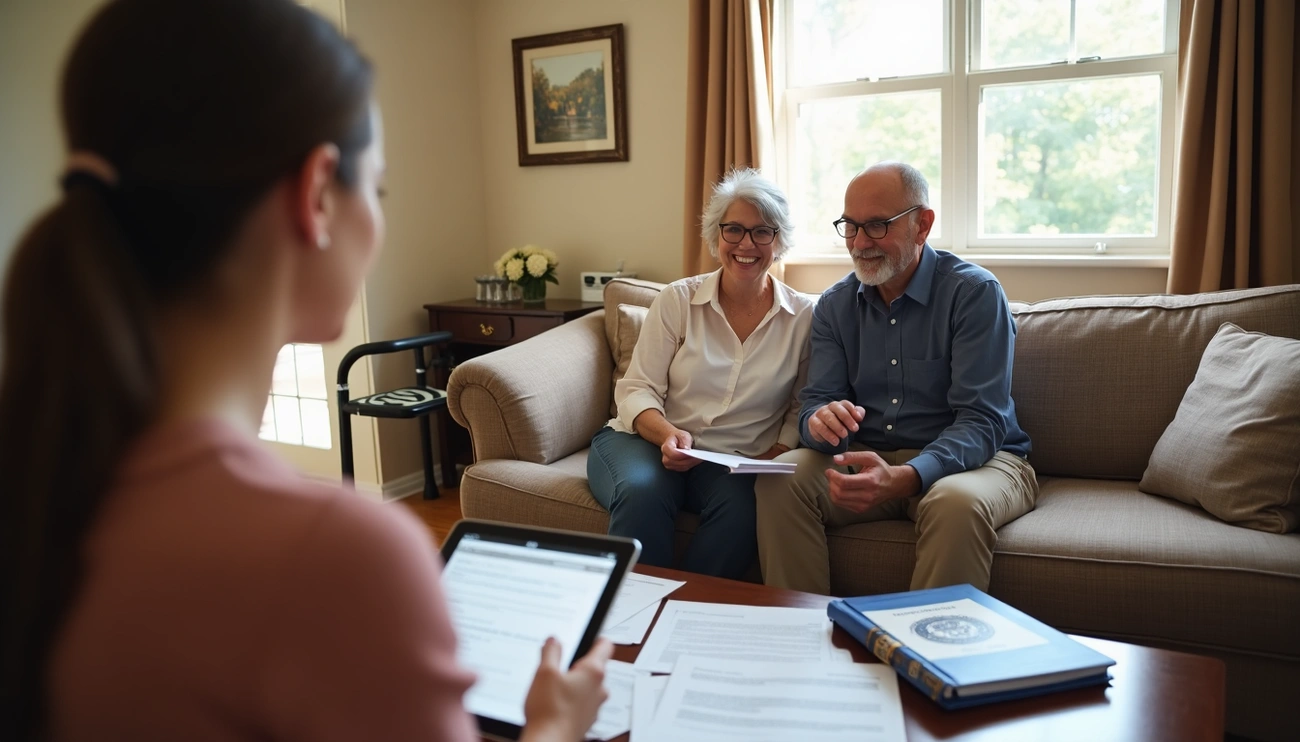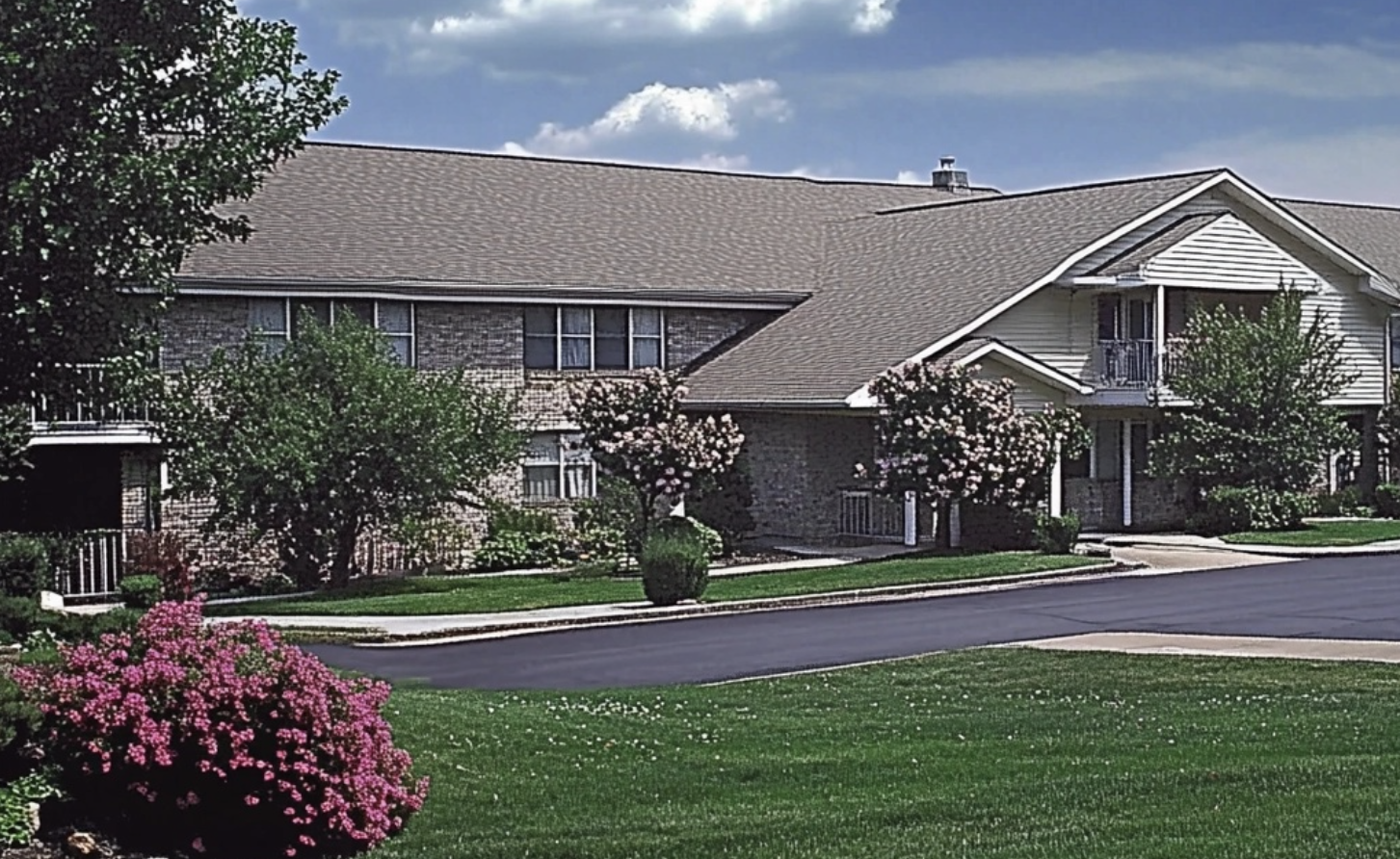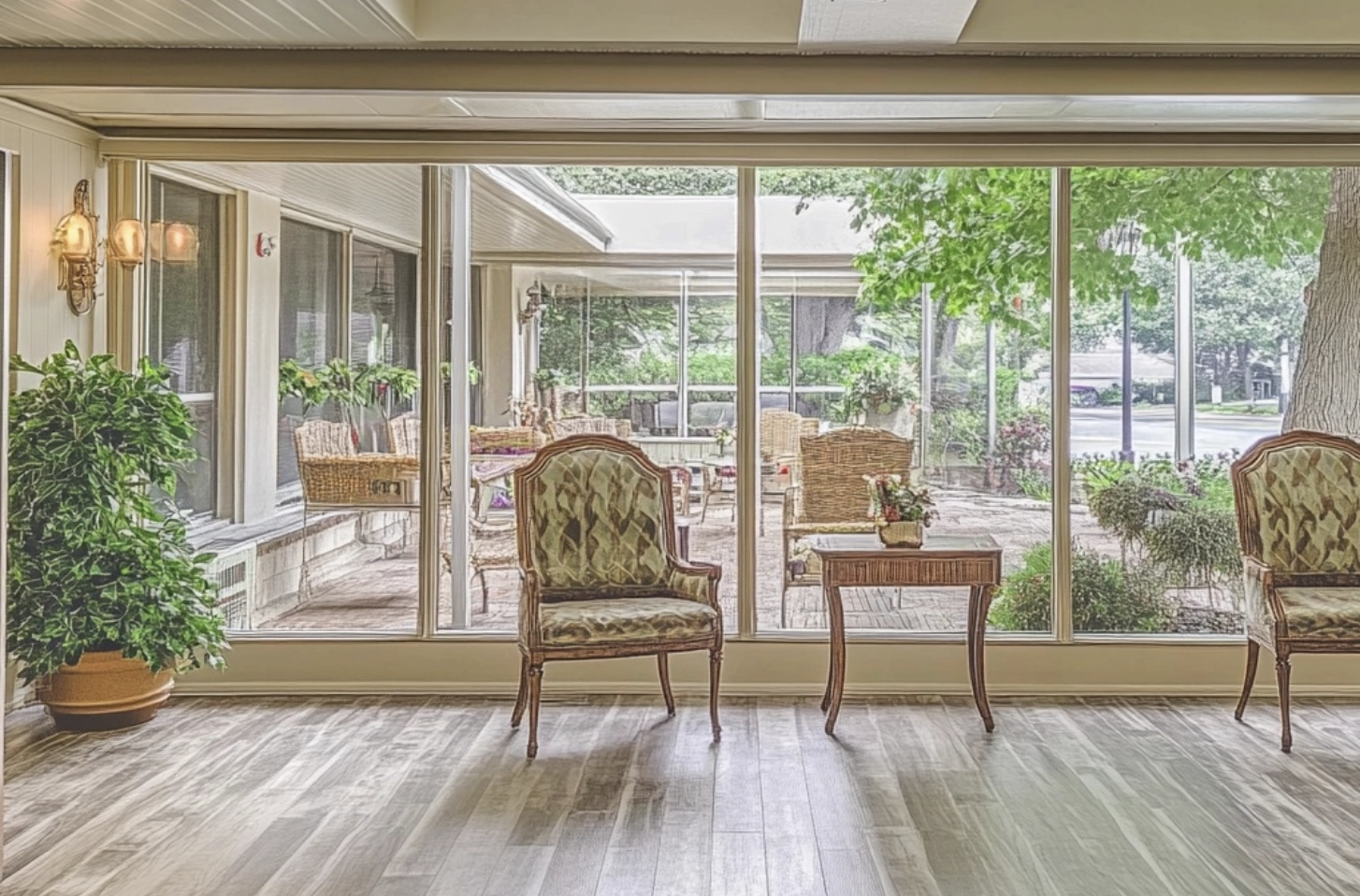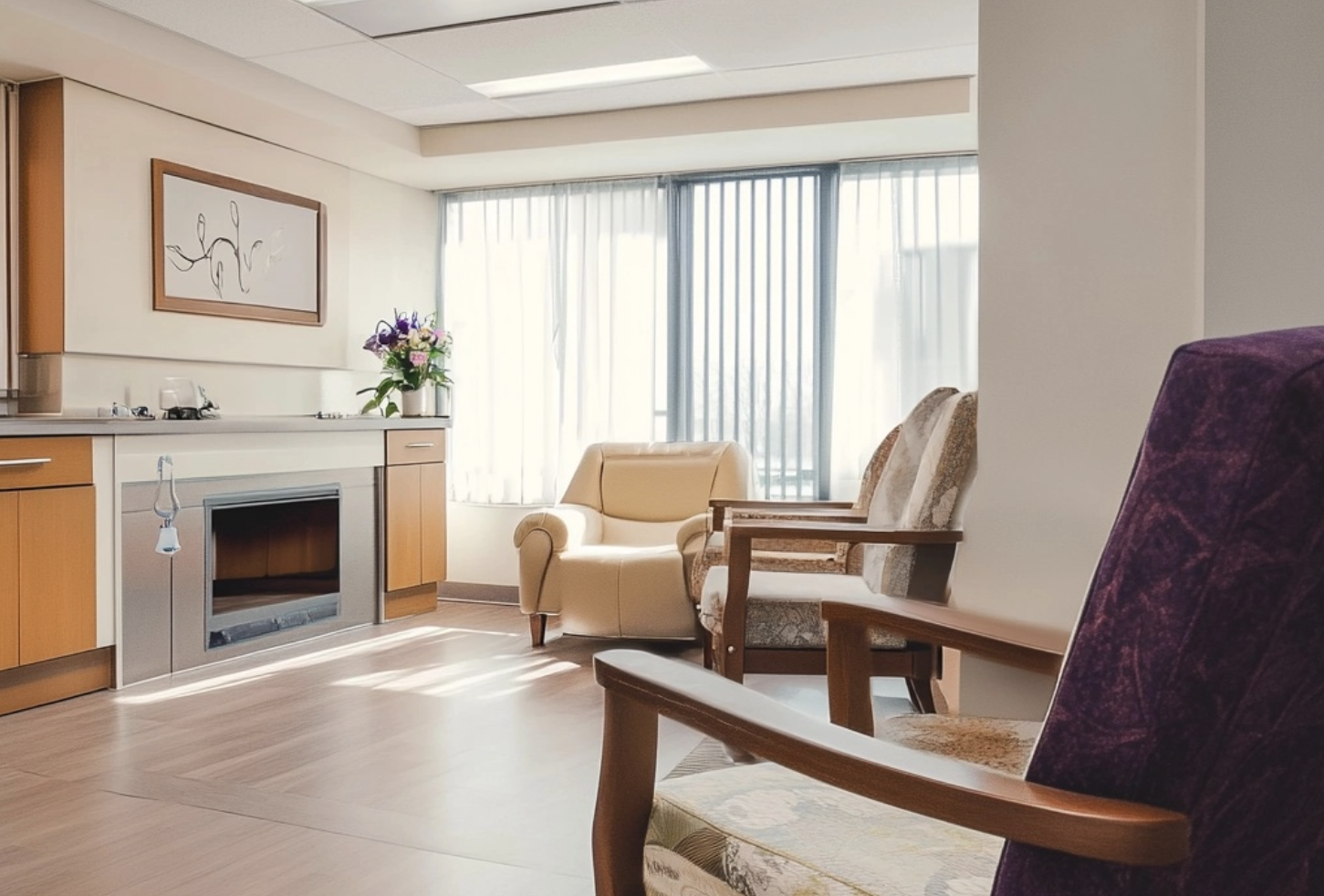The decision to move a parent to assisted living brings major changes that affect both families and their loved ones. Adult children often wonder about the right frequency of visits to their parent’s new home. They want to stay connected while giving their parent space to adapt to this new lifestyle. A thoughtful approach helps create meaningful interactions during this transition.
Frequent visits are a vital part of keeping relationships strong and giving emotional support to elderly parents in care facilities. Time spent together helps strengthen family bonds as everyone adjusts to the changes with patience and understanding. This piece offers smart ways to plan visits, choose activities, and create special moments that enrich both parent and child’s lives.
Establish a Consistent Visiting Schedule
A good visiting schedule needs you to think over both your parent’s needs and your family’s capabilities. No single solution exists for how often you should visit your parent in their living facility that receives help with care. However, a consistent routine benefits everyone involved.
Best Times to Plan Your Visit
These times work great for meaningful visits:
- Mid-morning through early afternoon tends to be perfect as energy levels peak
- Right after daily activities but before dinner time
- During family-friendly events the facility hosts
- Weekends offer a more relaxed atmosphere
Communicate your schedule with staff and your parent
Open communication with the facility staff creates smooth and meaningful visits. Your family should talk about planned visiting schedules with caregivers to line up with your parent’s daily routines and medical care timing. The staff can better prepare residents for visits through this mutually beneficial approach that helps prevent schedule conflicts.
The care team gave an explanation about the times your parent stays most alert and receptive to company. They might recommend specific times that work well with the community’s activity calendar and your loved one’s personal schedule.
Be flexible at the time it’s needed
Regular visits matter, but life sometimes requires adjustments to your visiting schedule. Your parent’s health status, facility events, or your family commitments might need you to modify your routine temporarily. You’ll need to keep the facility’s core team and your parent informed about any changes to the schedule.
People who live close by usually find weekly or bi-weekly visits strike the right balance. Those who live farther away might choose longer but less frequent visits. The schedule should fit everyone’s needs and limitations while giving you enough quality time together.
Plan Engaging Activities for Your Visits
Quality time with a parent in assisted living gets better by a lot when you plan meaningful activities. These planned activities create purposeful interactions and strengthen family bonds through shared moments together.
Bring photos, games, or hobby materials
You can make visits more meaningful by bringing items that create natural conversations. Family photos and scrapbooks help unlock precious memories and lead to heartfelt discussions. Board games, cards, or puzzles offer fun ways to interact and keep the mind active. Creative parents can continue their interests when family members bring craft supplies or materials related to their hobbies.
Participate in community events together
Assisted living facilities host many activities that welcome families. These events are a great way to get social interaction and bring the community closer. You and your family can:
- Join exercise classes and walking groups
- Enjoy music shows and movie nights
- Create crafts and work in the garden
- Celebrate special holidays together
Go on short outings at the time possible
Brief trips outside the facility can provide a refreshing change of scenery. Plan these outings carefully based on your parent’s abilities and energy levels. Many families choose nearby parks, restaurants, or local attractions. The core team needs to know about your planned outings to ensure proper arrangements for any medical requirements.
Success with outings depends on simplicity and manageability. Your parent will likely enjoy short trips to familiar places that provide stimulation without becoming overwhelming. Outdoor activities suited to the weather, like walks in facility gardens or on designated paths, are a great way to get fresh air and gentle exercise while staying comfortable and safe.
Note that some parents feel more secure staying within the facility environment. Indoor activities and community events can create equally meaningful interactions that align with their priorities.
Foster Meaningful Conversations
Quality communication is the foundation of meaningful visits with parents in assisted living. Good conversations help maintain emotional bonds and give all the support needed during this life transition.
Ask open-ended questions about their day
Good conversations begin when you ask thoughtful questions that spark detailed answers instead of simple yes or no responses. Your parent will share their experiences and feelings more freely when you ask the right questions. Here are some questions that work well:
- “What activities did you enjoy most today?”
- “Tell me about the new friends you’ve made here”
- “How do you like the seasonal changes in the garden?”
Share family news and updates
Frequent updates about family life create strong connections between parents and their loved ones’ daily lives. Sharing family news makes parents active participants in the family dynamic and shows how much they matter. Parents need context at the time of sharing updates to process and respond to the information. This back-and-forth communication makes parents feel valued and included in the family’s journey.
Reminisce about cherished memories
Meaningful life experiences create powerful connections and emotional well-being. Reminiscence therapy works wonders, especially with sensory prompts like photographs or familiar objects. Family members can guide these conversations through simple steps.
Creating memory triggers: Old photographs, family albums, or meaningful objects naturally start conversations about cherished memories. These items lead to storytelling sessions that strengthen family bonds and create chances to share important family history.
Following emotional cues: Parents might show interest in specific memories or time periods. Family members should explore these topics further. This helps conversations flow naturally and respects their parent’s comfort levels.
A meaningful conversation needs balance between active listening and gentle guidance. Family members can help their parents feel heard, valued, and connected during their assisted living stay by creating a supportive space for open dialog.
Involve Other Family Members
Family involvement expands the support network and creates a richer experience for parents in assisted living. Studies consistently demonstrate that active family participation substantially affects residents’ well-being and quality of life.
Coordinate visits with siblings or relatives
Coordinating with family members ensures everyone provides consistent support and prevents overlapping visits or long gaps between them. Creating a shared digital calendar helps everyone track their visits and eliminates scheduling conflicts. Family members can split their duties based on where they live and their schedules, so some can handle regular visits while others take care of paperwork and special events.
Planning Grandchildren’s Visits
Grandparents and grandchildren benefit uniquely from spending time together. These special moments can:
- Enhance mental wellbeing and help overcome loneliness
- Create chances to pass down family stories and traditions
- Build precious memories through activities they share
- Help everyone stay active and socially connected
The right timing and preparation are significant for successful visits with grandchildren. Parents should schedule visits when grandparents feel most alert and energetic. Children need preparation about any physical limitations or medical equipment they might see. Brief, well-organized visits work best, especially when you have younger children.
Make video calls easier with distant family
Technology today gives us great ways to stay close to family members who live far away. Video calling platforms are now available to more seniors, and several easy-to-use options work well:
- ViewClix Smart Frame – built with seniors in mind with a simple design
- Amazon Echo Show – lets you make video calls just by speaking
- Facebook Portal – works through social media you already know
A regular video call schedule helps family members stay in touch consistently. These virtual meetups work great alongside in-person visits and keep parents connected to their family network, whatever the distance between them.
Family members should work together to build a detailed support system that takes care of both emotional and day-to-day needs. This shared approach makes sure parents get regular attention and no single family member feels swamped with too many tasks.
Conclusion
Well-planned and regular visits are the foundations of meaningful time with parents in assisted living facilities. A mix of scheduled activities and quality conversations creates a supportive environment that helps parents adapt to their new home. Family members who plan their visits, prepare activities, and stay in touch with the core team find their time together more rewarding.
Family bonds play a crucial role when parents move to assisted living communities. Each visit becomes a chance to strengthen these connections. Families who adopt both old-school and digital ways to stay in touch help their parents feel valued and supported during this transition. Parents feel secure knowing their family stays involved, while children find comfort through regular interactions with their loved ones.




